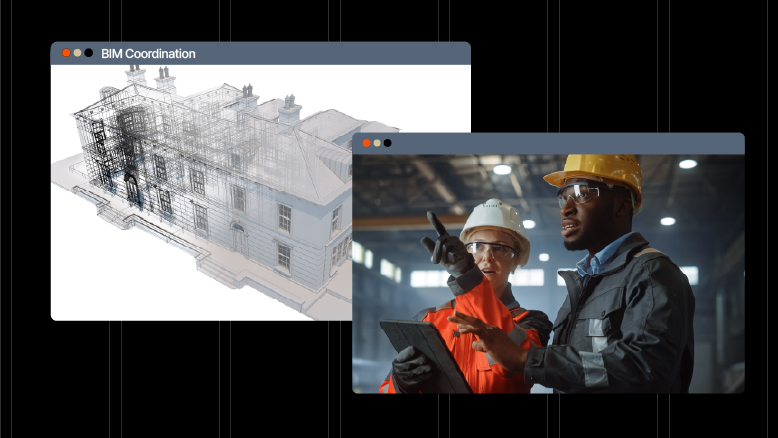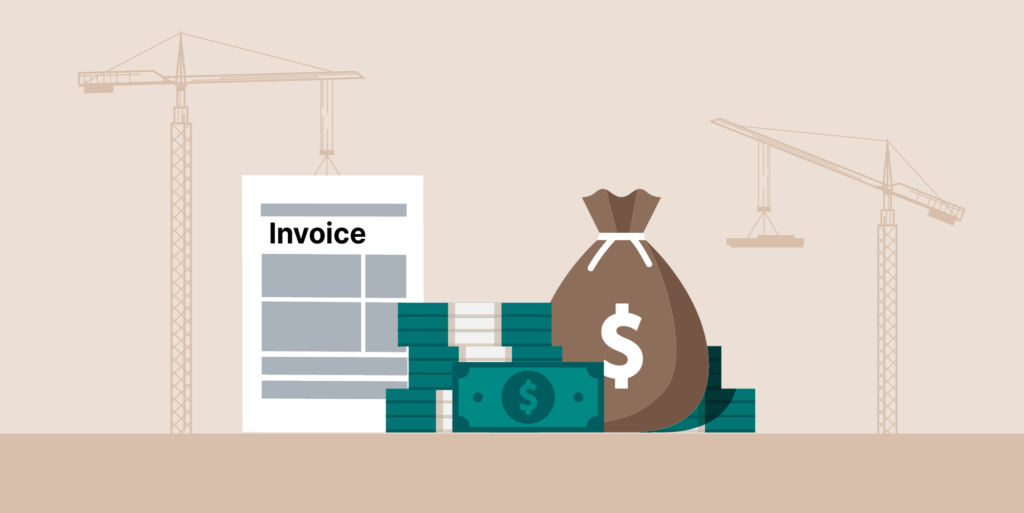— 10 min read
Soft Costs and How They Impact Construction Outcomes
Last Updated Jun 11, 2024
Last Updated Jun 11, 2024

Soft costs in construction are expenses that are not directly linked to the physical construction of a building or structure yet remain crucial for the project's delivery.
In contrast to hard costs, which pertain to tangible, physical components of construction such as materials and labor, soft costs are more indirect, often entailing services, fees, and other non-material aspects of the project.
Soft costs are a crucial component of construction budget management, demanding careful consideration and adept handling to safeguard a project’s financial viability. Integrating both hard and soft costs is key for precise planning and budgeting in construction projects.
In this article, we explore different types of soft costs, how accurately estimating soft costs impacts project outcomes, and best practices for their effective management.
Table of contents
Soft Costs: A Deep Dive
While not directly tied to the physical construction, soft costs wield substantial influence over a project's success. Distinguishing between soft and hard costs helps owners to discern the true cost of a development project.
Soft costs are expenditures not directly tied to construction activities. The majority of soft costs usually occur in the predevelopment stage of the project, prior to construction kick-off.
Learn more about managing soft costs in Balancing Hard Costs vs. Soft Costs in Construction.
Types of Soft Costs
The most commonly found types of soft cost on construction projects are:
Legal and Administrative Costs
Typical legal and administrative expenses for a project include:
- Permits and licenses: Before starting construction, necessary permits and licenses must be secured. This ensures the project meets local regulations and building codes.
- Legal fees: Costs that arise from contract negotiations, dispute resolutions, or any other legal needs associated with the project.
- Insurance premiums: Construction projects require various insurance coverages, from general liability to builders' risk, to protect against unforeseen incidents.
- Taxes: Depending on the location and nature of the project, various taxes, such as property taxes, may apply during the development phase.
Design and Development Costs
These costs typically arise during the planning phase, transforming a development idea into a tangible blueprint.
- Architectural and engineering fees: These entail expenses related to engaging professionals responsible for the project's design. Additionally, this category includes fees for subconsultants who specialize in areas such as structural, mechanical, plumbing, and electrical engineering, ensuring the design is not only aesthetically pleasing but also functional.
- Feasibility studies: These represent the expenses involved in analyzing a project's viability. At this stage, a project owner evaluates whether their idea can be realistically constructed. Such studies delve into aspects like financial implications, environmental impacts, and local regulations, ensuring that the project doesn't just look good on paper, but can be executed in the real world.
- Surveys and site assessments: Costs that cover topographical surveys, soil tests, and other assessments. These evaluations provide critical insights into the site's conditions, highlighting any potential additional costs that may arise during construction.
Financing Costs
The financing behind funding a project usually comes with its own expenses. These include:
- Interest on construction loans: Larger projects typically require financing, and the accrued interest on these loans constitutes a significant expense. These interest costs can escalate if the project experiences delays.
- Loan origination fees: Fees charged by lenders to process, approve, and establish a new loan.
Operational and Miscellaneous Costs
As the project progresses, other various costs can arise. These are often tied to the day-to-day management and operations of the construction:
- Project management fees: Fees for project managers or firms, also known as owner’s representatives, that are hired to oversee the project, ensuring it stays on track in regard to the budget and schedule.
- Consultancy Fees: Specialists might be brought in for various aspects of the project, from environmental consultants to interior designers.
- Marketing and sales expenses: Selling or leasing space involves advertising costs, broker fees, and more.
Explore data and trends for building materials prices.
Get the latest U.S. retail prices and view historical trends for common building materials.
Significance of Accurately Estimating Soft Costs
Misjudging soft costs, even by a small margin, can disrupt a project's viability or financial performance. A common mistake is underestimating soft costs, leading to budget overruns and potential financial difficulties. To prevent this, proper planning, frequent budget reviews, and contingency planning can help in mitigating these risks.
Inaccurate soft cost estimates can have cascading financial impacts. Initial budget overruns might seem manageable earlier on, but as the project progresses, these costs can accumulate, leading to significant financial strains. This can force owners to divert funds from other crucial project components, compromise on quality, or even halt development until additional funds are acquired.
Learn more: Mitigating Cost Overruns in Construction
Best Practices for Managing and Controlling Soft Costs
Soft costs, while intangible, play a significant role in the overall budget and viability of construction endeavors. Managing them is paramount for ensuring financial stability. The following section delves into best practices derived from industry leaders, ensuring your project stays on track both operationally and financially.
Effective Planning and Budgeting
Accurate and meticulous planning is the foundation for successful project delivery. Anticipating potential costs and budgeting for them ensures that there are few if any unexpected expenses later on. The earlier the planning and budgeting phase starts, the better. This provides ample time to research, gather quotes, and understand the financial landscape of the project.
Organization
Unlike hard costs, which are relatively straightforward, soft costs can be more nebulous. The varied nature of these costs makes it easy to miss some if you do not itemize and account for them separately. A successful approach involves categorizing and detailing each potential soft cost item. By doing this, owners can anticipate expenses such as legal fees, design revisions, or permitting delays. Creating a dedicated soft cost schedule within the project's financial framework account for these often-overlooked expenses.
Communication
Engaging stakeholders and experts at the project's outset fosters a holistic grasp of the project's scope and its associated financial implications. With their unique perspectives, they can offer insights or raise new concerns, leading to a more robust and realistic budget.
Plan for Contingencies
Soft costs are less predictable than hard costs. While it’s relatively simple to calculate the amount of concrete or steel needed for a project, it's harder to predict how many design revisions will be necessary or how long permitting might take.
It's beneficial to allocate a contingency specifically for soft costs, especially given their tendency to fluctuate. With a comprehensive and proactive approach to soft cost budgeting, stakeholders prepare for the financial intricacies of the project lifecycle.
Hire Experienced Professionals
Experienced architects, project managers, and other professionals bring invaluable knowledge to the table. They not only know how to design and execute a project efficiently but can also anticipate challenges and costs that may not be obvious in the beginning. Their expertise and knowledge can prevent costly mistakes and omissions.
For example, a seasoned project manager, having previously dealt with projects in a specific area, might anticipate a lengthy permit approval process. They could start the permit application earlier in the project schedule, preventing costly delays. The project manager might also have established relationships with local authorities, further smoothing the approval process.
In essence, the depth of knowledge that experienced professionals offer is more than just theoretical. It's practical, tested, and refined over time, making it an essential asset in managing soft costs effectively.
Improve Tracking Accuracy with Software
Modern construction management software can provide tools to track and manage both hard and soft costs in real time. This technology allows stakeholders to monitor all expenditures, compare them against the budget, and make data-driven decisions. If expenditures are nearing or surpassing budgeted amounts, owners can intervene early and make any necessary adjustments before minor issues evolve into significant financial setbacks.
With the ability to store and analyze data from past projects, these software tools can also provide insights into historical spending patterns. This information can guide budgeting for future projects, highlighting areas where soft costs were traditionally underestimated or overestimated.
Formulate Clear Contracts
Contract formulation plays a pivotal role in the determination, allocation, and management of soft costs in construction. A well-drafted contract can help in controlling and predicting these costs, while an ambiguously framed or incomplete contract can result in unforeseen expenses and disputes.
Define Scope of Work
Clearly defining the scope of work as part of the contract helps in identifying potential soft costs associated with design, planning, permitting, inspections, and more. Ambiguities in the scope can lead to disagreements, potential redesigns, or added consultations, escalating soft costs.
Define Protocols
Construction projects frequently undergo changes, affecting both hard and soft costs. Clearly defined protocols for requesting, approving, and implementing change orders can prevent scope creep, budget overruns, and the administrative costs of these changes.
Define Liability
It’s best practice to include terms around who is responsible for ensuring regulatory compliance, acquiring permits, and paying associated fees. A misstep in this area due to contractual ambiguities can lead to fines, legal complications, and delays, escalating soft costs.
Implementing these strategies enables stakeholders to ensure that projects remain financially viable and can execute within the anticipated budgetary constraints.
Stay updated on what’s happening in construction.
Subscribe to Blueprint, Procore’s free construction newsletter, to get content from industry experts delivered straight to your inbox.

Example of Soft Costs on a Project
Let’s explore an example of how soft costs impact outcomes on a hypothetical project.
UrbanEdge Development, a renowned commercial real estate developer, eyed expansion into a new location—a thriving mid-sized city. Their vision was to create a sprawling, mixed-use project with several multi-family buildings in a prime location.
To realize their vision, UrbanEdge curated a list of parcels matching their criteria: waterfront proximity, a minimum size of two acres, and located within three miles of the city's center. Of these, two sites stood out. Engaging a surveyor for a preliminary assessment including soil tests and topographic surveys, they discovered the first site had soil unsuitable for erecting a large multi-family edifice.
Based on a recommendation from a trusted partner, UrbanEdge collaborated with Element Edge Architecture, a reputed firm, for a feasibility study of the second site. Pleased by the findings of the site’s viability, UrbanEdge embarked on the land acquisition process. However, when considering the architectural design phase, UrbanEdge, aiming to manage soft costs, sought out a less costly architectural firm.
The new architectural firm, though competent, was relatively new and did not bring the wealth of experience Element Edge did. Unlike their predecessors, Element Edge, they were unfamiliar with the city's unique Design Board requirements.
UrbanEdge, also a newcomer, hadn't factored in the Design Board's role and specific expectations as well as the implications on the project’s finances. Every presentation to the Board came with a significant price tag of $100,000. After four unsuccessful attempts, the soft costs surged, incurring UrbanEdge an unforeseen expense of $350,000.
This oversight led to a 5% budget escalation and extended the project timeline by six months. These mistakes not only increased the financial strain due to elongated construction timelines but also affected the potential rental and sales revenues.
UrbanEdge's journey underscores the crucial aspect of soft costs in project management. Their experience spotlighted the importance of thorough research and the value seasoned local professionals bring to the table. This case serves as a testament to how overlooking soft costs can cascade into tangible financial implications and project delays.
Navigating Soft Costs in Construction
Soft costs, often overshadowed by their tangible counterparts, play a pivotal role in shaping the financial landscape of construction projects. Accurate estimation and effective management of these costs are vital, ensuring projects remain on budget and schedule. By understanding and proactively addressing soft costs, developers can sidestep potential pitfalls and optimize project outcomes.
Was this article helpful?
Thank you for your submission.
100%
0%
You voted that this article was . Was this a mistake? If so, change your vote here.
Scroll less, learn more about construction.
Subscribe to The Blueprint, Procore’s construction newsletter, to get content from industry experts delivered straight to your inbox.
By clicking this button, you agree to our Privacy Notice and Terms of Service.
Categories:
Tags:
Written by
Jimmy Primsky
Jimmy is an account executive for owners at Procore. Prior to joining the construction tech industry, Jimmy worked in financial management for construction owners. Jimmy has a masters in degree in accounting from Bachelors degree from University of Colorado Boulder.
View profileTaylor Riso
73 articles
Taylor Riso is a marketing professional with more than 10 years of experience in the construction industry. Skilled in content development and marketing strategies, she leverages her diverse experience to help professionals in the built environment. She currently resides in Portland, Oregon.
View profileExplore more helpful resources

How to Understand and Use Architect’s Supplemental Instructions
Architect’s supplemental instructions, also known as ASI, offer a means of making small changes to the construction contract after it’s signed. The ASI is a document issued by the architect...
Improving Project Monitoring with Construction Quantity Tracking
Once a construction project is underway, builders need to closely monitor the project’s progress and make sure it’s staying on schedule and within budget. Quantity tracking helps construction leaders manage...

Streamlining Construction Projects with Effective BIM Coordination
The old saying goes: if you fail to plan, you plan to fail. Construction professionals know this better than nearly anyone. To take a project from a vision in an owner’s...

Construction Invoice Factoring: A Quick Guide
Construction companies need to maintain consistent cash flow. Projects can take years to complete, and delays and unforeseen events may keep expenses mounting. Adding to this load are typically high upfront...